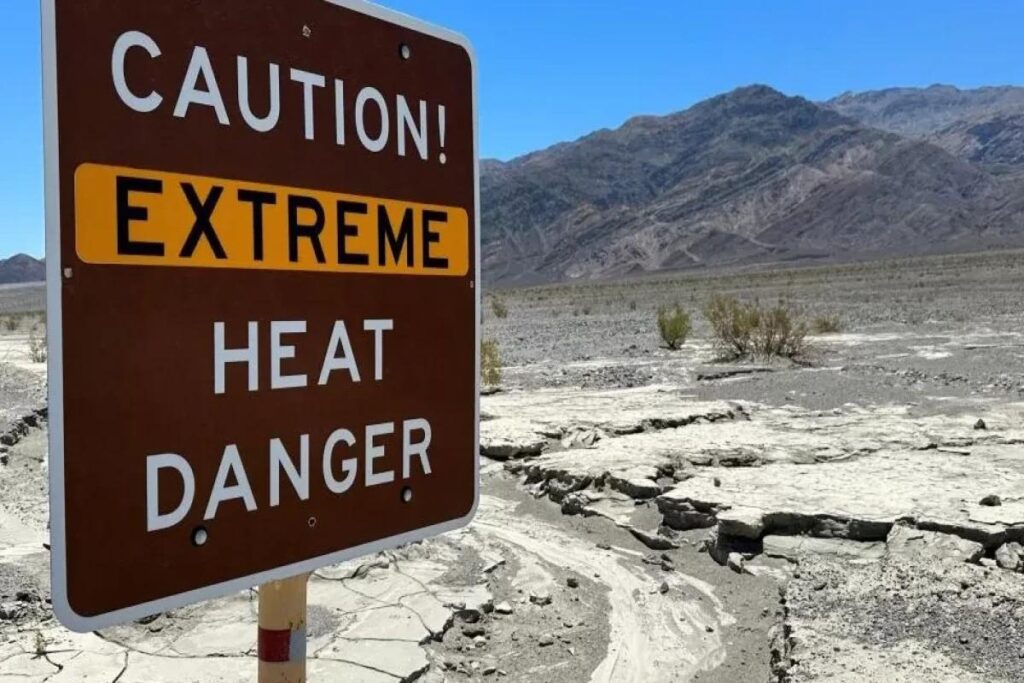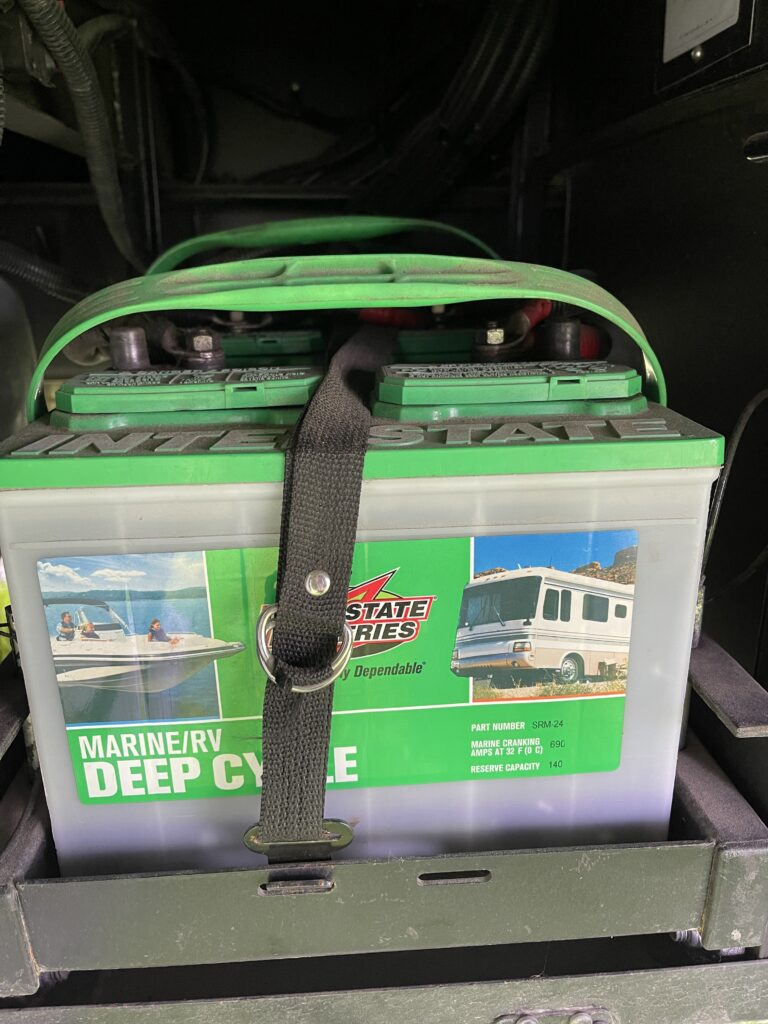
Do Temperature Swings Affect RV Battery Life?
When you’re uncomfortable because of the heat, some of your RV systems are also suffering. Tires, air conditioning units, joint seals, and batteries are all negatively impacted by prolonged extreme heat.
- Tires: If possible, shield your tires from direct sunlight (to reduce UV light damage). Check the pressure in your tires before embarking on your next journey.
- Air conditioners: Check and clean the filters in your air conditioning units to make sure air flow is unimpeded. If it’s hot for extended periods of time, and you have two air conditioners, try turning one on at a time.
- Roof joint seals: Always keep an eye on the roof joint seals to be sure no breaks in the caulk manifest, resulting in potential leaks later on.
- Batteries: Finally, in hot weather, be aware that your batteries are working overtime to cope with the heat and may need more attention.
What affects your RV battery performance?
When temperatures rise, a battery’s internal resistance decreases, which can impact the performance and safety of your RV battery system. The lowering of internal resistance may give the battery a little extra runtime, but it adds stress to the system. These effects vary depending on the type of battery, the chemistry used, the battery’s age, and the depth of discharge (DOD).
For example, lithium-ion batteries actually have greater performance and storage capacity when exposed to extreme heat. However, it shortens the lifespan of the batteries, and in some cases, that loss is significant. A 20% gain in storage capacity certainly does not offset the long-term loss of functionality for these expensive batteries. One study showed that a temperature increase from 77° Fahrenheit to 113° Fahrenheit doubled the lifespan degradation (from 3.3% degradation to 6.7%, for the first 200 charging cycles).
Does cold weather affect your battery?
Consequently, both extreme heat and cold affect battery performance, and your batteries should be monitored in both temperature extremes. A consumer report showed that AAA responded to over 2 million dead battery service calls in the summer months of 2022. From this, we can see that cold weather (where a battery can lose up to 35% of its charge at 32°F and 60% of its charge at 0°F) is not the only threat to your batteries.
All types of RV batteries—lithium-ion, lead-acid, Absorbed Glass Mat (AGM), and others—are adversely impacted by prolonged heat. Lead-acid and Absorbed Glass Mat batteries can lose water through evaporation or the liquids in the battery boiling over. Excess heat causes crystals to form (sulfation) on the lead plates of lead-acid batteries. This reduces the surface area and diminishes the chemical reaction that produces a charge in the battery. Additionally, pressure can build up in sealed batteries, causing them to explode.

Other sources of heat
Other sources of heat are just as destructive as the climatic impact on your batteries.
Certain batteries placed near heat sources in the engine compartment affect their temperature and airflow. Road heat and sunlight on the engine or battery area are also risks to batteries.
What can you do?
There’s not much you can do about any of these sources of extreme heat. You can’t make the roads you travel any cooler or even move your battery to a more ventilated location. But there are a few things you can do to minimize the risks of battery failure due to extreme heat.
To prolong battery life, regularly check them, maintain them as per manufacturer’s instructions, and replace them before exceeding their recommended lifespan.
You can also install a battery management system so you can monitor the charge level in your batteries.
In addition, create a shade for the battery cabinet when parked to prevent overheating. When it’s time to replace your batteries, choose deep cycle batteries that stand up better under conditions of excessive heat.
One example is the AGM ODYSSEY® battery, manufactured with Thin Plate Pure Lead (TPPL) technology, which can perform in extreme temperatures as high as 176°F (80°C). These non-spillable and virtually maintenance-free batteries also have a slower self-discharge rate, less corrosion, and a faster recharging rate than other conventional batteries.
Heat causes a faster discharge rate
Remember, batteries discharge faster in excessive heat. If you camp (or you store your RV) in prolonged high temperatures for a long time, it will affect your RV battery performance. It is estimated that constant heat in excess of 77°F cuts battery life in half for every 15°F of increased temperature.
There are many systems in your RV that are adversely affected by extreme heat. However, none are more profoundly problematic than your batteries. Keep an eye on them.
Track your RV maintenance
Make sure you keep track of all your RV maintenance with an online tool such as RV LIFE Maintenance. Not only can you keep all of your documents in one place, but you’ll also receive timely reminders when maintenance is due.



